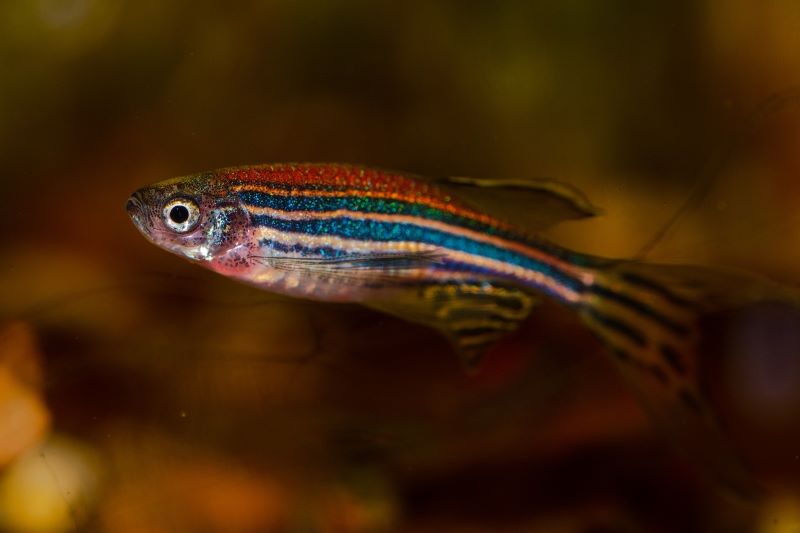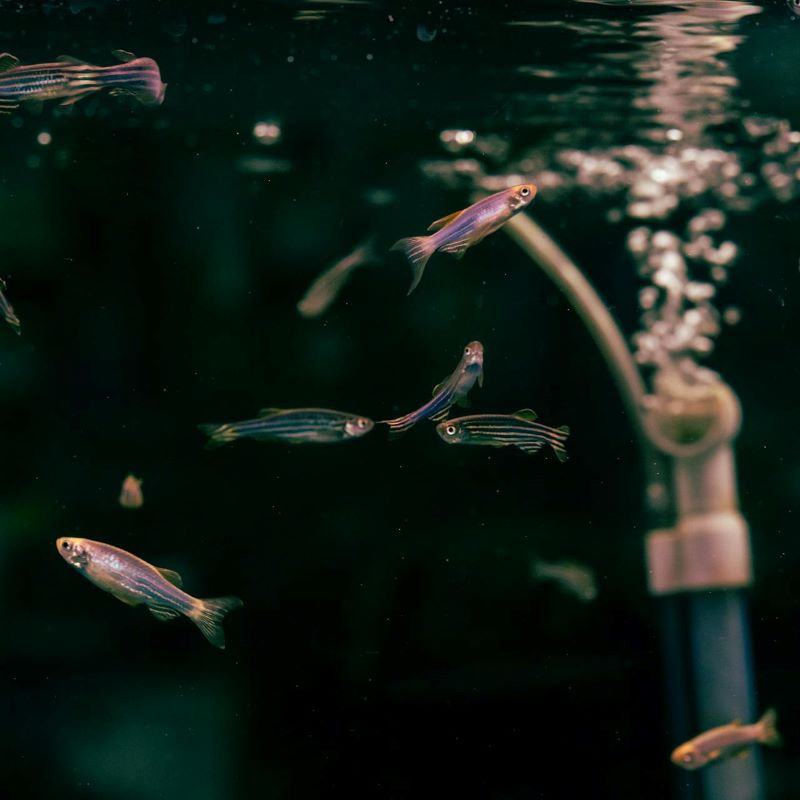
- Zebrafish exposed to light pollution at night showed signs of anxiety, such as swimming less and staying close to aquarium walls.
- Blue light, like that from phones and other devices, caused the strongest anxiety reactions, with fish feeling the effects after just five nights.
- The next generation of zebrafish also showed anxiety-related behaviors, even without direct exposure to the light, suggesting lasting effects across generations.
Light pollution affects fish into the next generation
A new study showed that fish exposed to artificial light at night not only exhibited behaviors associated with anxiety, but their offspring, who were not exposed to the lights, then also exhibited these behaviors. On September 23, 2024, scientists from the Institute of Hydrobiology Chinese Academy of Sciences and the Max Planck Institute of Animal Behavior said they studied zebrafish exposed to artificial light. They disrupted the natural dark-light cycles. While all forms of night lighting produced a negative effect on the fish, blue light – the kind emitted by our phones and other devices – was the most harmful.
The paper said:
Artificial light at night can disrupt the natural behavior, physiology and circadian rhythms of organisms exposed to it, and therefore presents a significant and widespread ecological concern.
The scientists published their peer-reviewed study in the December 2024 volume of Science of the Total Environment.
The study
The scientists exposed female zebrafish to all-night lighting in their aquariums. They exposed the fish to nine separate wavelengths across the visible spectrum along with white light. The intensity of the lighting was set to mimic that of streetlights at a distance.
Lead author Wei Wei Li of the Max Plank Institute said:
Sleep is one of the main processes of animals that is disrupted by artificial light at night. So we were curious to know what that means for their ability to navigate their lives. In other words, what does it mean for their behavior? The light levels that we used in our study matched what is already shining into the homes of animals at night through the many sources we place outdoors. And we found extremely strong and clear negative effects on the behavior of fish and their offspring after only a few bright nights.
Blue light is particularly bad
The experiment lasted for eight nights. The result was that the fish in the study exhibited anxiety-like behaviors. They swam less, stuck closer together and hugged the walls of the aquarium. And light at the blue end of the spectrum was worse. Fish exposed to the blue light exhibited the anxiety sooner, after only five nights.
Co-author Aneesh Bose of the Max Plank Institute said:
This is consistent with what is known in humans, that exposure to the blue light of our electronic displays has the biggest effect on our sleep and possibly other physiological cycles.
Artificial lights at night are all around us. Outside, we’re bombarded with streetlights, building and home exterior lights, advertisements and security lighting. They shine onto both land and water. And even inside our homes, TVs, smart phones, tablets and other devices surround us with blue light, sometimes even up until the time we close our eyes for the night’s sleep.

Light pollution affected the next generation
But it wasn’t just the subjects in the study that felt an impact. The scientists then allowed the zebrafish in the study – all female – to breed. They raised the resulting offspring under normal lightning conditions. Yet these fish still exhibited decreased daytime movement, despite not having the exposure of the night lighting themselves.

Light, sleep deprivation, anxiety
The study aimed to see if the light affected the fish, and it did. But the study did not set out to answer why it affected the fish. However, the researchers have ideas. They think sleep deprivation leads to the anxiety-type behaviors in the fish. It would explain why their anxiety behaviors were not immediate but cropped up after five to eight nights. Bose said:
The fish could pull a few all-nighters, but after too many nights of disrupted sleep it eventually caught up to them.
Minimize the use of blue-wavelength light
So light pollution has negative effects for a broad spectrum of life on Earth, from humans down to fish. Co-author Ming Duan of the Institute of Hydrobiology Chinese Academy of Sciences said:
We found that light pollution disrupted the natural behavior of fish, and this disruption may have fitness and performance consequences. Many of the places we light up at night are close to animal habitats. The best thing we can do is to minimize the use of blue-wavelength light sources where animals are trying to sleep.
Bottom line: A new study showed fish exposed to light pollution at night exhibited anxiety-like behavior, and the lighting even affected the next generation of fish.
Via Max Plank Institute of Animal Behavior
Read more: Light pollution causes insects to lose track of the sky











